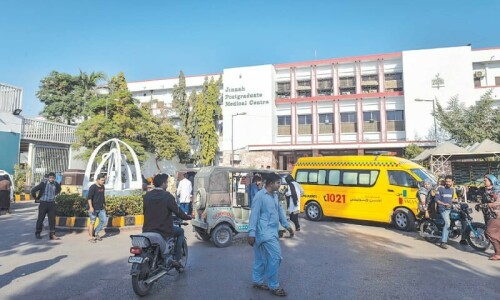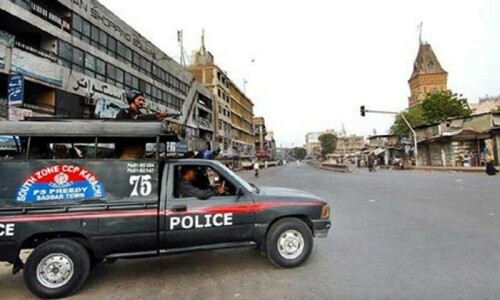KARACHI: The Sindh Commission on the Status of Women (SCSW), government of Sindh, together with Oxfam Pakistan and the Legal Aid Society launched the Sindh Directory of Support Services for Women and Girls Experiencing Violence and Abuse and the Gap Analysis Report of Service Providers for Gender-Based Violence in Punjab and Sindh at a local hotel here on Wednesday.
The directory and the gap analysis report carry details of support services available in Sindh while also identifying the gaps in these services at the country level.
“At the Legal Aid Society office we receive phone calls from all over the country of people especially women looking for guidance about their rights, their inheritance, etc. They are not sure where to go for what. The publications can help them as they have the contact details they are looking for,” said retired Justice Arif Hussain Khilji of Legal Aid Society in his welcome address.
“These directories will need updating, of course. In fact, it would be more helpful if you put them all up on a website,” he added.
SCSW chairperson Nuzhat Shirin said that they were a reasonable young commission with a small but enthusiastic and caring staff that had in the past three years worked at linking government institutions with civil society to improve government institutions including police stations.
“And now we are working at taking all that to the next level. We want to improve implementation mechanisms. We want to make them stronger. Therefore, these publications are a very valuable document. We will also have them translated into Urdu and Sindhi and distribute them in all police stations and social welfare departments,” she said.
Isma Sana of Oxfam, who joined in virtually from Islamabad, said that the need for such a directory was felt by them during their field visits in Sindh for research. “It is needed to make known where the safe houses are,” she said.
Haya Zahid of the Legal Aid Society said that conviction rates were falling and not enough cases were reported. “There is legislation in place. But the cases are not coming forward and even if they do the survivors are treated so poorly and badly that no one else who may have been wronged wants to come forward. We should treat survivors so well and give them so much respect that others like them would also want to come forward,” she said.
Researcher and writer Nazish Brohi said that by the time a woman reached formal legal services she had already gone through several trials. “She has had to withstand family pressures and community pressures,” she said, adding that this happens due to inadequate understanding of how survivors of different forms of violence have different needs, and also due to the impact of class, religious and ethnic groups within communities.
She also said that there should be availability of services and accessibility.
Published in Dawn, April 1st, 2021












































Dear visitor, the comments section is undergoing an overhaul and will return soon.